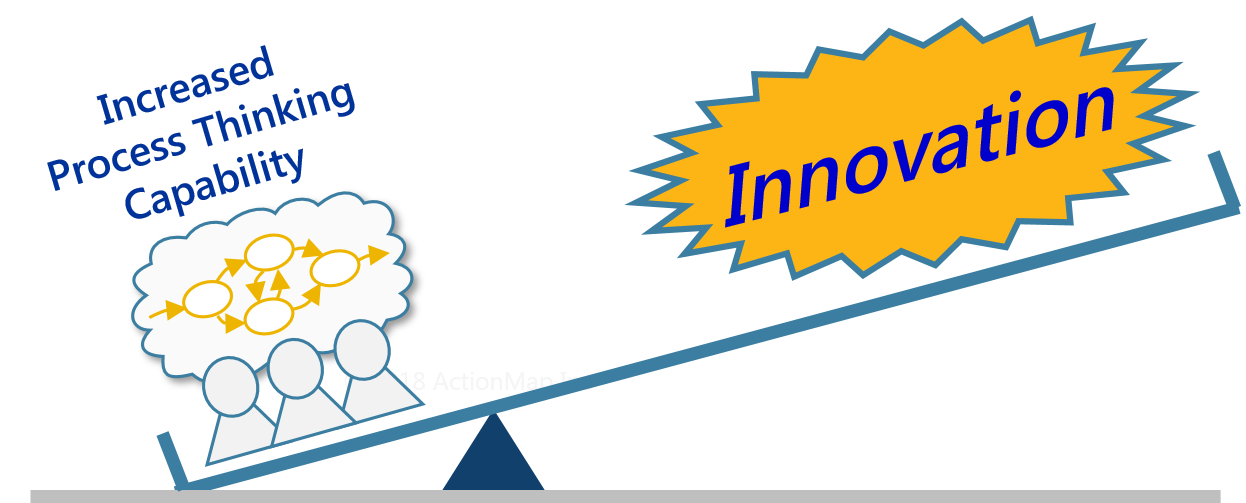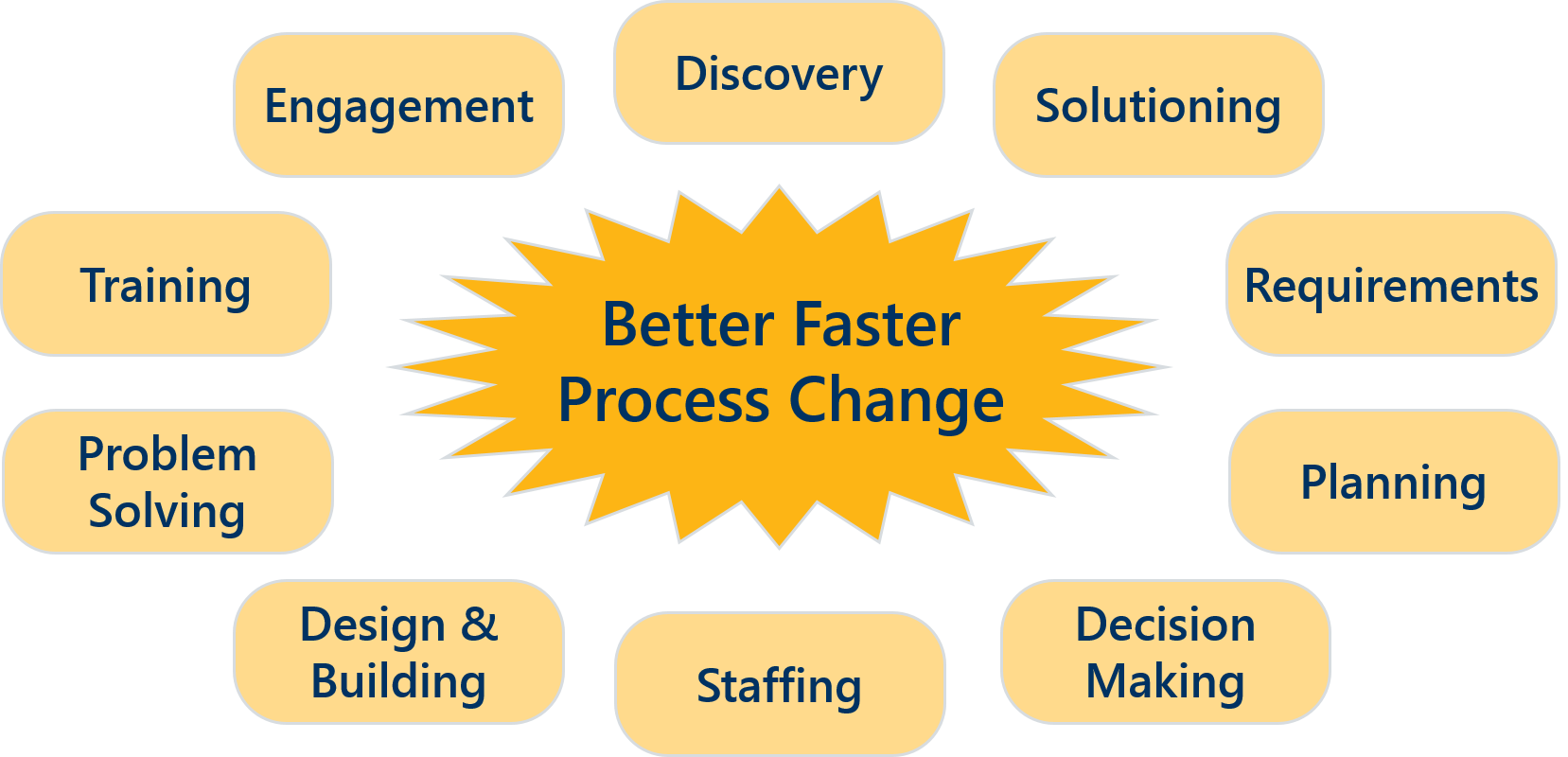ActionMap Accelerates Projects, Innovation and Transformation by Accelerating the Collaboration Required for Process Change
ActionMap gets its power from a deep, strong leverage point

Follow the Logic
(and look for ways around it)
Delivery of Value
Value can be anything that any stakeholder considers to be of value to themselves or to others

Operation of Processes
The reliable delivery of value depends on processes: planned and/or repeated patterns of events

Process Change
(Invention, Development, Improvement)
(Invention, Development, Improvement)
Change in the delivery of value requires changing the processes that deliver value

Change Action
Intentional, constructive process change requires making specific changes to process contents, workflow and/or fixed assets

Plans and Motivations
In order for people to perform intentional, constructive process change actions, they need specific plans of what to do along with the motivation to do it

Collaboration
With complex processes, collaboration among stakeholders is required to arrive at feasible, effective and acceptable plans, and sufficiently strong motivations

Understanding, Agreement and
Commitment to Take Action
Commitment to Take Action
The key results of collaboration are understanding, agreement and commitment to take action. In complex situations these need to be supported by documentation. However documentation by itself is not a substitute for the understanding, agreement and commitment
Issue: the standard way to create understanding, agreement and commitment to take action is to keep having meetings until these results are achieved
Change idea: look for a way to rapidly and systematically create strong, shared, detailed understanding, agreement and commitment to take action, supported by high quality process maps, evaluations and action plans

Process Thinking Capability
Understanding, agreement and commitment to take action depend on process thinking capability, the capacity of individuals and groups to make mental models of processes and process change. No mental models, no process change; better faster mental models, better faster process change

Process Thinking Languages
Specialized types of thinking use specialized types of languages, for example double-entry bookkeeping, music notation, sports play diagrams and calculus. Process thinking capability can be strengthened by use of a process thinking language. Process thinking languages can be found in process methods

A Process Thinking Language
that Is Optimized for How People Work
that Is Optimized for How People Work
The most effective process thinking languages will be those that are designed to work the way people already work, in terms of how people naturally think about processes and process change. That helps make the process language easy to learn, fast to apply, highly effective, and widely applicable


Accelerate Innovation

